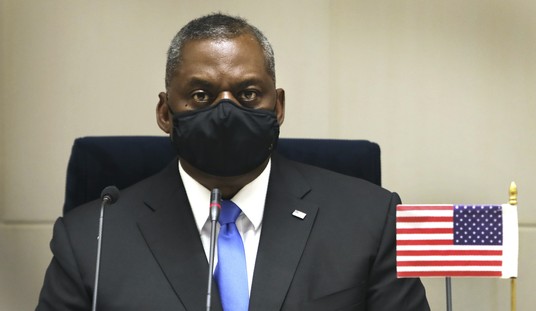
IMG_1136 Huawei by A4-Nieuws, licensed under CC BY-SA 2.0/Original
The day after President Trump and Chinese President Xi seemed to reach an accord on the developing trade war between the US and China, the chief financial officer for the Chinese telecom company Huawei, Meng Wanzhou, was changing flights in Vancouver, British Columbia. What should have been routine turned out to be anything but that. She was detained by Canadian police based on an arrest warrant issued by the United States charging her with violating US sanctions laws. Apparently, Huawei uses some US built parts in its products which were in turn sold to Iran, Syria, and North Korea. The Chinese are not terribly happy that the number two officer in one of China’s largest corporations–and, oddly enough, the daughter of the CEO of that company–is on the cusp of being extradited to the United States and spending an extended vacation there.
The news ignited anger and astonishment in China on Thursday, mere days after leaders of the United States and China announced a reprieve in their trade battle.
A “declaration of war” against China was how Hu Xijin, the editor in chief of Global Times, a state-run newspaper known for its nationalist tone, described Ms. Meng’s detention on Weibo, a Twitter-like service.
Gavin Ni, the chairman of Zero2IPO Group, an influential research and consulting firm in China’s investment industry, wrote on his WeChat social media account: “The China-U.S. competition is not merely a trade rivalry, but a rivalry on all fronts. Carry on, our motherland!”
At a daily news briefing on Thursday, Geng Shuang, a spokesman for China’s Foreign Ministry, said it had asked American and Canadian officials to give a reason for the detention and to immediately release Ms. Meng.
“To detain someone without giving clear reason is an obvious violation of human rights,” Mr. Geng said.
There are several pieces here that I think need to be looked at in detail.
First, I think it is fair to say that Ms. Meng is a convenient example. A lot of countries, particularly in Europe, are dumping Huawei because it is suspected that their equipment has trapdoors installed to allow Chinese intelligence to use that equipment to infiltrate otherwise secure networks. Huawei products have been the subject of government action in the US, UK, New Zealand, India and in other countries. An FCC rule is under consideration that would have the effect of banning Huawei and its “competitor” (I use scare quotes because no sane person believes the Chinese government is actually allowing these two companies to compete), ZTE, from US markets.
The fact that Ms. Meng basically said the US could f*** right off in regards to sanctions on Iran probably drew the target on her.
Meng took part in an internal question-and-answer session on October 29 with her father, Huawei founder Ren Zhengfei, where father and daughter shared their views on compliance.
Both executives made references to the need to control the costs of compliance and not to exceed what is legally required in individual jurisdictions, according to a transcript of their remarks distributed to employees and obtained by the Post.
Meng spoke of the different types of external regulatory compliance, dividing them into “red” and “yellow” lines. The former referred to rules where there is “no bargaining and must be strictly complied with,” she said. The latter is where strict compliance is not operationally feasible and the company can build in the costs of flouting the rules as “sunk costs,” she said, citing examples such as labour risks.
“Of course, beyond the yellow and red lines, there may still be another scenario, and that is where the external rules are clear-cut and there’s no contention, but the company is totally unable to comply with in actual operations. In such cases, after a reasonable decision-making process, one may accept the risk of temporary non-compliance,” she said.
I’m guessing the “risk of temporary non-compliance” she was talking about didn’t include a personal prison term.
Not only are US-China trade relations strained, but Huawei is a perceived bad actor, and they were openly flouting US sanctions on Iran, so the amount of non-Chinese diplomatic give-a-f*** this will set off is de minimus.
The second part of this is the message sent to European executives who might be thinking that EU resistance to US sanctions on Iran is a good business strategy. If the US will arrest the number two person in the most high-profile Chinese corporation on sanctions violations, then that Volkswagen executive is going to have second thoughts about doing business with Iran.
On the other hand, and this is a personal view, I am finding the Trump administration’s willingness to use the US criminal code as a weapon of foreign policy to be disturbing. Special Counsel Robert Mueller has indicted known GRU or SVR operatives for their role in trying to cause confusion during the 2016 elections and afterward. I don’t think this is a particularly bright idea as the same tools can be just as honestly used against US Cyber Command operatives who screw about in other people’s elections…including Russia’s. Do we want some of our people arrested on the strength of a Russian criminal indictment while they are traveling?
While Meng is a great target, she is also a very high-risk target. Now the administration either has to try her or not. If they don’t, and release her based on some nebulous agreement from Huawei to observe US sanctions, this action will be perceived, rightfully so, by China as an empty gesture. If they try and imprison her, then you can bet a US executive of similar rank is going to be arrested and sent to China.
This is another move in American foreign policy that strikes me as marking the decline from an era of Grand Strategy…which I would argue packed up and left along with GHW Bush in 1992…to an era of Immediate Gratification. Increasingly, we are taking actions based on what feels good right now rather than looking at logical outcomes (support of the Arab Spring fits right in here) or with even an end-game considered. This is not a Trump thing, this is an American thing. I’m pretty sure that while Meng’s arrest will cause some great headlines, in the long run, it will not be seen as a terribly bright action.
=========
=========
Like what you see? Then visit my story archive.
Follow @streiffredstate
I’m on Facebook. Drop by and join the fun there.
=========
=========












Join the conversation as a VIP Member